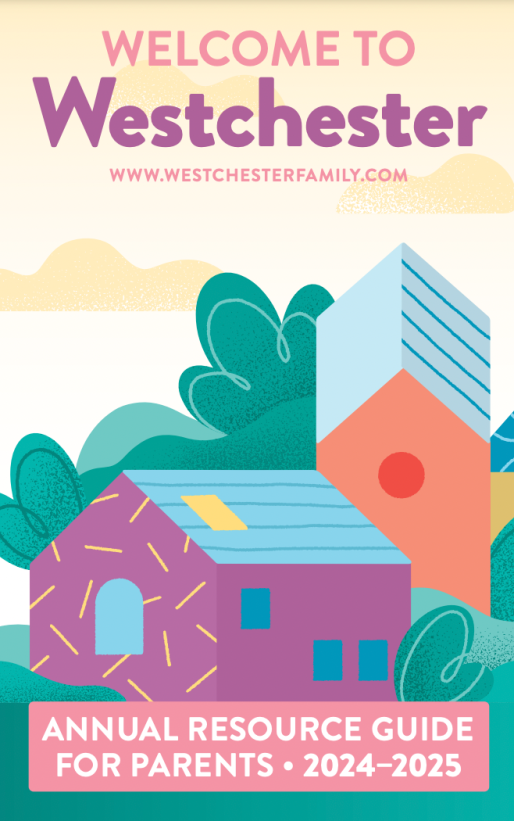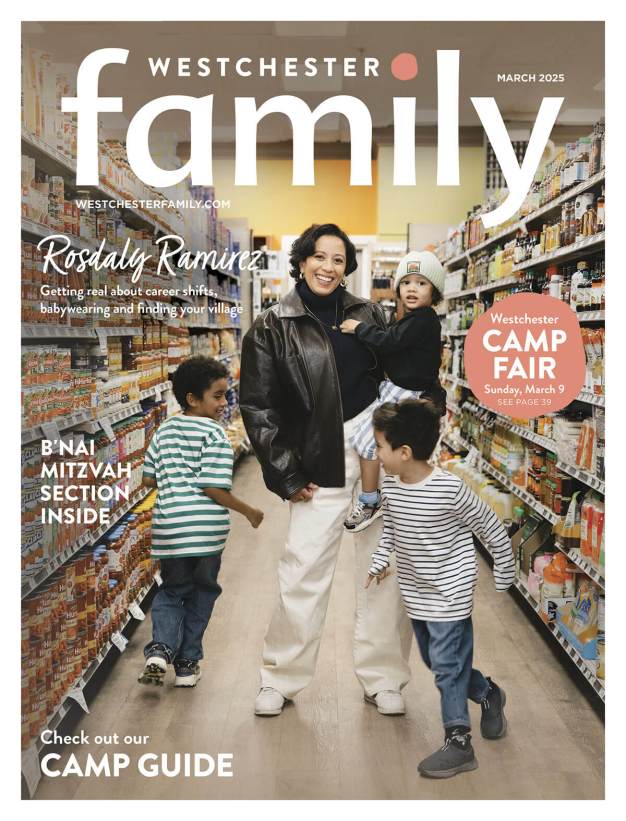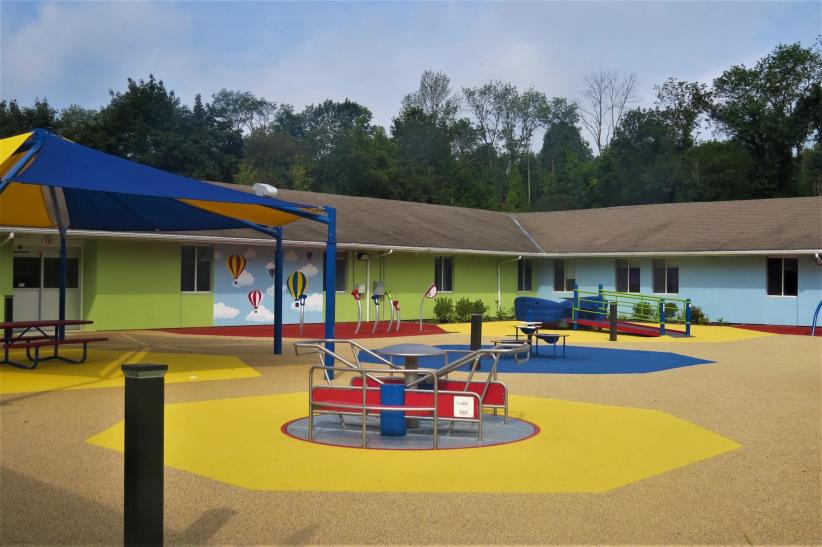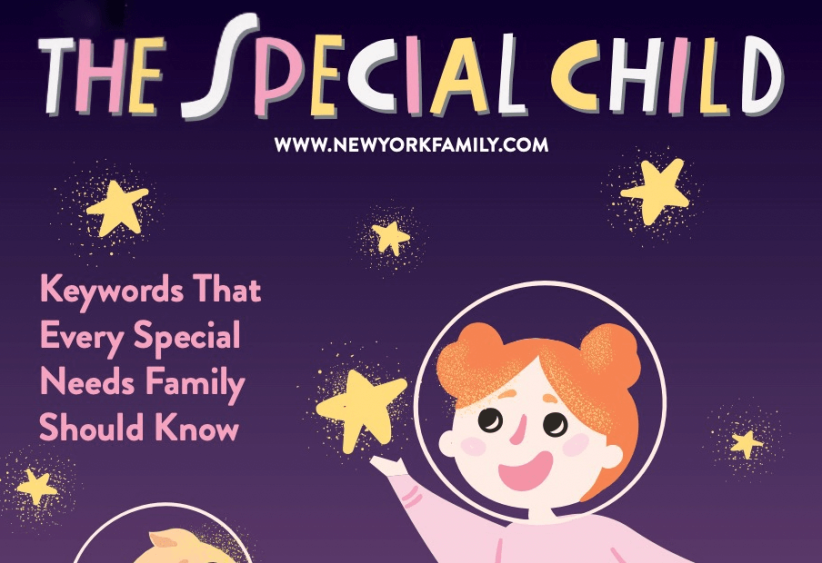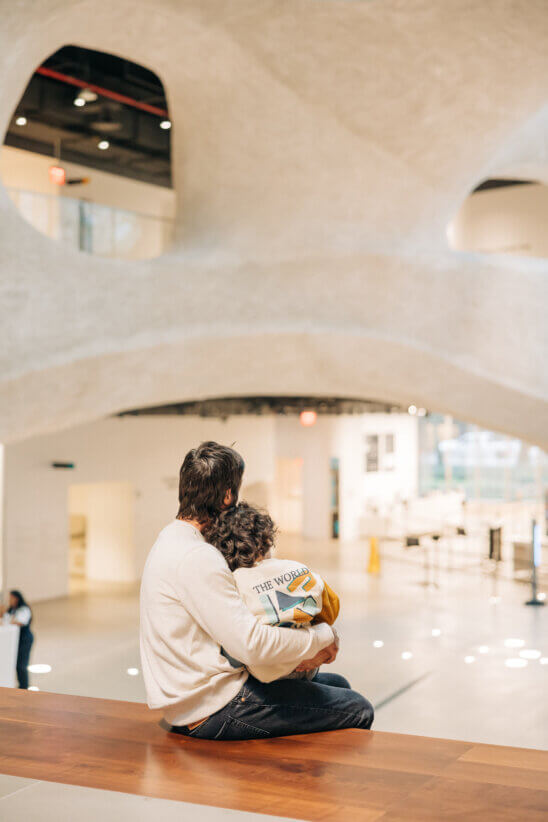
Empowering Museums in Westchester and NYC for Kids with Special Needs
Providing accessibility is crucial to ensure that kids of all abilities are able to enjoy the many cool things to do in Westchester and NYC, including visiting our many museums. This may include a range of options such as wheelchair accessibility, access to service animals, discounted and free admission, special sensory rooms, sensory kits, and much more. We hope this list provides you with some guidance to ensure that your memorable trip to a local museum can accommodate your child’s needs.
Westchester Museums
By Serena Norr
Katonah Museum of Art
134 Jay Street, Katonah, NY 10536
914-232-9555
Adults, $12; students, $6; children under 12 are free
Discounted general admission ($6) for visitors who identify as disabled and their caregivers
wheelchair:yes
Known for its compelling collection of rotating art exhibits, the Katonah Museum of Art hosts many events for families throughout the year. This includes creative community Fridays with stroller tours, artful Fridays with museum games, art-making crafts, storytime, and a summer social with live music. For children on the autism spectrum or those who have sensory processing differences, the museum offers a KMA Sense Family Backpack. This includes noise-reducing headphones, fidget toys, an art activity, and some special books. They also have a KMA Social Story, which helps to prepare children and their families for their visit to the Museum. This is accessible on the Learning Center exhibition page, or at the front desk to provide guidance for anyone who will be in the new environment of the museum.
Additionally, the gallery has two all-gender wheelchair-accessible restrooms, wheelchair and gallery stools, and all public spaces are located on the ground floor. They also have elevator access if guests need to reach the second floor. Service animals are permitted as well. Additionally, they offer a discounted general admission for disabled guests and their caregivers.
Neuberger Museum of Art
Purchase College
35 Anderson Hill Road, Purchase, NY 10577
914-251-6100
neuberger.org
Free admission
wheelchair:yes
Located on the campus of Purchase College, Neuberger Museum of Art features modern, contemporary and African art. In fact, this museum is one of 14 sites on the African American Heritage Trail of Westchester County. For children with special needs and disabilities, the museum offers wheelchair accessibility throughout the building. This includes wheelchair access in the galleries and restrooms. Additionally, wheelchairs are available without charge at the museum’s entrance. Guests can call 914-251-6100 or 914-251-6117 for additional information regarding their entrances and access points.
Hudson River Museum
511 Warburton Avenue, Yonkers, NY 10701
914-963-4550
hrm.org
Adults, $13; youth (3–18) $8; kids under 3 are free (separate fees for Planetarium & Glenview) $3 discount off general admission for visitors with disabilities and free admission to caregivers of visitors with disabilities.
wheelchair:yes
Located in Yonkers, kids will love checking out the Hudson River Museum, with its focus on art, science, and history. Highlights include the cool Planetarium shows, interactive arts and science events, a tour of the historic Glenview estate, a rotating collection of contemporary art, and access to their gorgeous outdoor courtyard.
For special needs and disabilities, they provide wheelchairs for visitors, which can be used throughout the museum and the Planetarium. Additionally, the Planetarium and the Amphitheater are equipped with Radio Frequency Assisted Listening Systems to assist with sound delivery for those with any hearing impairments. The museum also offers a $3 discount off general admission for visitors with disabilities, and caregivers of visitors with disabilities are free.
LEGOLAND Discovery Center Westchester
39 Fitzgerald Street, Yonkers, NY 10710
914-775-6015
$29.99 for kids (3-12 years old) and adults. Children 2 years and under are free.
free admission to caregivers of visitors with disabilities
wheelchair:yes
Kids will love a day of brick-building at LEGOLAND Discovery Center Westchester. Dubbed the “ultimate indoor playground,” your kids will instantly be “wow-ed” by Miniland and its 1.5 million bricks, the Merlin’s Apprentice ride, Lego Friends, Duplo Village, and more. The center is also designed for special needs and disabilities, with the majority of its attractions being (ADA) accessible to those who use wheelchairs or need special services.
This includes an ADA-accessible theater with indoor seating areas for visible impairments, front-row spaces for wheelchairs, scripts are available for those with hearing impairments, and wheelchair-accessible rides. LEGOLAND Discovery Center Westchester also offers a no-cost caregiver ticket to those accompanying guests with special needs and/or disabilities. Additionally, leashed service animals are also permitted in the public space throughout LEGOLAND. Guests with autism can use their birthday party rooms (when not used) as a quiet space for breaks. They can also offer services for kids who can’t wait in line.
Westchester Children’s Museum
Playland Bathhouse
100 Playland Pkwy, Rye, NY 10580
914-421-5050
$9 per person and free for kids 1 and under.
wheelchair:yes
This immersive museum dedicated to play and discovery offers a fun collection of permanent and rotating exhibits and interactive events such as storytime, music, and more. For visits with special needs, the museum is wheelchair accessible and located on one level. Additionally, they are always looking to improve their programming for groups or those with individual needs and encourage parents to call them at 914-421-5050 to help plan a special visit for your child.
They also have partnership with The Nicholas Center where they offer volunteer work for adults with autism, promoting accessibility, inclusion, and equity for autistic adults while breaking stigmatization as well as building on the quality of life and self-esteem of autistic adults. “The partnership between The Nicholas Center and the Westchester Children’s Museum exemplifies our mission in action – to create innovative programs and services that allow Autistic adults to learn, live, and work in the community.
The Museum staff is welcoming and inclusive, and our team thrives as Play Workers, promoting inclusion and equity for Autistic individuals. This experience shines a light on what this wonderful population offers and breaks stigmatization to all who witness individuals thriving. The impact on the children and families who visit the Museum is already being felt. The Nicholas Center seeks and welcomes these types of inclusive opportunities within the community. It is a win-win for all involved.” – Jeremy Scalchunes, Associate Executive Director of Programs, The Nicholas Center.
NYC MUSEUMS
NYC Museum Guide by Donna Duarte- Ladd & Barbara Russo
DiMenna Children’s History Museum
Located in the lower level of New York Historical Society
170 Central Park West
at Richard Gilder Way (77th Street)
Families can explore the nation’s historical narrative and the vibrant tapestry of New York City through captivating exhibits illuminating prominent historical figures’ life journeys from childhood to adulthood. The facilities, galleries, and auditorium are wheelchair accessible, with complimentary wheelchairs for visitors.
For those who are blind or visually impaired, free verbal-description docent-guided tours are available by appointment in conjunction with museum admission. For deaf or hard-of-hearing museum go-ers, most exhibitions are accessible for T-coil hearing aid users. T-coil compatible audio guides are available, also free of charge with admission. ASL interpreters are available but must be scheduled to accompany docent or educator-led group tours, such as school trips. Appointments for these services can be made by contacting access@nyhistory.org.
The Guggenheim
1071 Fifth Avenue
While the Guggenheim is an art space with its renowned modern and contemporary art collection, it is also one of the world’s most famous museums. Designed by architect Frank Lloyd Wright, its building is iconic. Although the building is stunning, it may feel out of reach if you are a parent of a child with disabilities. Thankfully, the museum has helpful resources to aid parents on their museum visit. There are ADA-compliant bathrooms located on Levels 1 and 7. There is plenty of room for wheelchairs; however, the High Gallery does not have wheelchair access. The space is quite open, so if your child is sensory sensitive, you may want to download the sensory map (guggenheim.org/accessibility) that maps out the areas (usually with seating) that tend to be quiet, less crowded, and low light.
For your ASD child, there is also a social narrative map. For visitors with low vision or who are blind, Mind’s Eye Tours runs excellent tours that share through verbal descriptions, conversations, sensory experiences, and clever practices. These free tours should be emailed (access@guggenheim.org or call 212 360 4355. a week before the program you would like to attend.
Intrepid Sea, Air & Space Museum
Pier 86, W 46th Street
From checking out historic planes, a prototype Space Shuttle Enterprise, a diesel-electric powered submarine, and more, families can spend an entire day at this museum by discovering history through Interactive exhibits and artifacts through hands-on experiences while learning about American military and aerospace technology.
The Intrepid Museum has a robust roster of programs for kids with disabilities. We recommend checking out their accessibility page for all their offerings. For blind and visually impaired visitors, there are verbal description and tactile guides that use raised images, Braille, and large print, as well as (ALDs) including stereo headphones, single-ear headphones, or T-coil compatible induction loops are available to borrow at no cost to something pretty cool like a talking pen. Autism kids aged 3 to 18 and their families can sign up for a free program called Early Morning Openings on Saturdays.
Additionally, there’s also sensory-friendly evenings for teens (14+) and adults with Autism who can have a fun evening after hours. As we mentioned in the intro, it’s easy for sensory-sensitive kids to get overstimulated; before you start exploring the museum, pick up a sensory bag for noise-reduction headphones and fidgets. Finally, there is also visual vocabularies, checklists, scavenger hunts, and activity sheets for all public programs at the Intrepid Sea, Air and Space Museum.
The Metropolitan Museum of Art
1000 Fifth Avenue, New York, NY 10028
People worldwide visit The Met, one of New York’s most extensive museums. This is something to remember when visiting, as it can be overwhelming, especially for kids. The museum features gorgeous paintings from renowned artists like Leonardo da Vinci and Vermeer. The Met houses sculptures where kids can look at Greek and Roman statues and contemporary pieces. There is also ancient, Asian, European Decorative, modern art, and more. The Met supports many people with different disabilities.
On the museums’ visibility section, find helpful resources for visitors on the Autism Spectrum. This includes tips, social narrative, Tour Visual Checklist, Sensory Friendly Map, and more. Additionally, you’ll also be also be able to find art workshops for kids, teens(and adults) who are Blind or Partially Sighted. Visitors can also find programs in American Sign Language, with Sign Language interpretation and real-time captioning. Finally, for caregivers of visitors with disabilities, head to the museum ticket counter, where you can pick up a free ticket.
The Museum of the City of New York
1220 Fifth Ave at 103rd St., New York, NY
MCNY is an excellent spot to visit and learn about the city’s history, starting from its colonial days. Visitors can view paintings, maps, art, decorative costumes, and more. The museum also hosts fun exhibitions, films, and immersive installations. If your child needs noise-reduction headphones, head to the front desk; if available, you can pick up a set- free of charge during your visit. Incredibly, a caregiver can receive free admission at the Museum Ticket Desk. Service dogs are welcomed, but emotional support animals need to stay home.
Wheelchairs are accommodated at the museum, and if available, there are manual wheelchairs available. Additionally, for large print and high-contrast transcripts of exhibition texts, head to the accessibility page on the Museum of the City of New York site. There is also a QR code in the Museum Guide that you can access once your there. In addition, assistive listening devices are available for events. You can find a form online for ASL interpretation guided tours on the accessibility page.
Museum of the Moving Image
36-01 35th Ave, Queens, NY 11106
For the film buffs in the family, you’ll want to head to the MoMI, where all things art, history, technique, and technology of film, television, and digital media come together. Guide dogs and therapy animals are welcome. This museum is fully accessible by wheelchair and is also available for free. On the first Saturday of each month until May 2024) there are free Access Mornings for families with children on the autism spectrum workshops where the kids can craft and explore the museum before it opens. A big plus is the reduced volume; videos not part of the workshop are not on. Call the museum for more info at 718 -777 6800.
MoMA
11 West 53 Street
For modern and contemporary art lovers, New York (again) has one of the best in the world. From paintings by Jackson Pollack, Pablo Picasso, and Roy Lichtenstein to world-famous photographers (Irving Penn, anyone?), sculptures, film and media art, design and architecture, and more, MoMA is one outstanding institution to visit. For families with disabilities, you can find Sensory and Social guides. Additionally, guide dogs and trained service animals are welcome, and while the pet guinea pig may bring comfort, they must stay home.
For wheelchair access, look for a security or a guest guide so you do not have to wait in line. Firstly, MoMA works with Art inSight. Secondly, blind or low-vision visitors can download recorded verbal descriptions of several artworks on the free Bloomberg Connects app. Finally, you can email AccessPrograms@moma.org at least two weeks in advance for a touch and description tour. Additionally, visitors with disabilities are eligible for a discounted admission of $18, and admission is free for an accompanied—care partner.
A huge favorite the museum features are the QR codes placed throughout the Museum. These QR codes include maps, additional artwork information, verbal descriptions, and assistive listening for sound artworks created to enhance your visit. There is no sensory room if your child tends to be sensory sensitive. However, on the MoMa site, you can find a sensory map of quiet spaces within the museum.
Whitney
99 Gansevoort St · (212) 570-3600
There are many reasons to head to the West Village; one is to spend time at the iconic Whitney Museum. The Whitney focuses entirely on American art, with each floor presenting vibrant and unique art, such as Georgia O’Keefe Edward Hopper to Layla Ali. And for our kids with disabilities and challenges, this museum offers support.
The Whitney gets very busy- for wheelchair visitors, there is a helpful map; for kids on the ASD spectrum, a social narrative can be downloaded (all of this can be found under the Accessibility tab on the museum’s site) to help with the visit before you arrive. Service animals are welcome at The Whitney. Additionally, if your child needs an ASL-English interpretation, Live captioning, or Verbal description for their public programs and events, these services can be requested in advance. Finally, parents with Sensory Sensitive kids will appreciate that the museum offers sensory-friendly art-making workshops on select Saturdays before the museum opens. Visit their events pages for postings.
